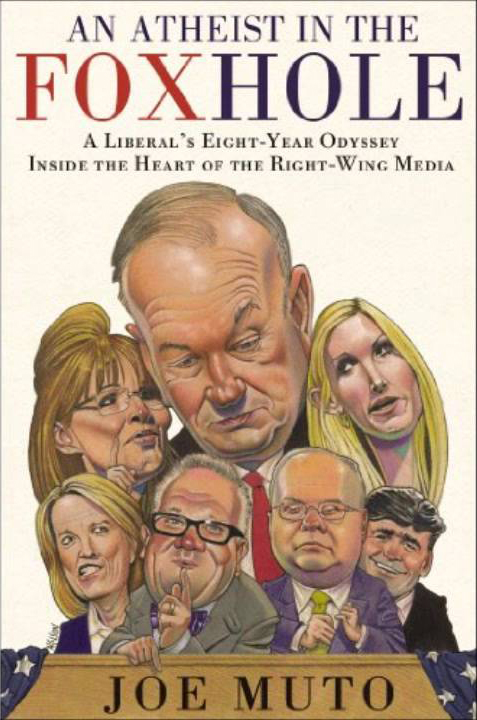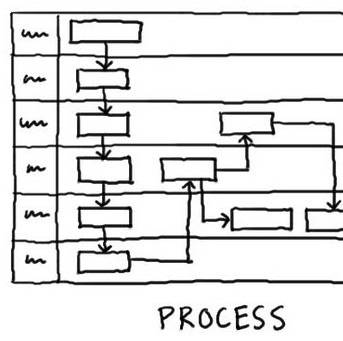
An Atheist in the Foxhole: A Liberal's Eight-Year Odyssey inside the Heart of the Right-Wing Media by Joe Muto (Dutton)
Joe Muto is not the first nor the last liberal to take the shilling of Rupert Murdoch’s belligerently conservative cable news network Fox. As Muto notes, Fox is based in New York City and trades in journalism, of a sort: a combination of location and profession that is always going to make it difficult to entirely avoid hiring people who ride bicycles, own sandals, vote Democrat and have opinions about organic muesli. Much of Fox’s trademark right-wing fulminating is therefore produced, scripted and presented by people like Muto who not only don’t believe a word of it but find it abhorrent and/or ridiculous.
Muto is exceptional, however, in a couple of important regards. One is the manner in which he finally confronted the cognitive dissonance involved in labouring to broadcast what he believed to be nonsense: he leaked insider footage and gossip from Fox to the bitchy investigative website Gawker, or at least did for a day and a half before getting found out and fired, and subsequently convicted of two misdemeanour charges pertaining to the theft of computer material, and sentenced to community service. This departure was, Muto admits, with characteristic self-deprecation, not so much a blaze of glory as “a Roman candle of mildly amusing infamy”.
Muto’s other important distinction is that he’s a natural raconteur, a breezy, amiable storyteller who manages to turn a yarn that could easily have been a magazine article into an altogether readable book that rarely feels padded. He alternates his narrative between an hour-by-hour account of the day on which his ill-considered mission of insider sabotage unravelled, and a wider memoir of his eight years at Fox, during which he rose from an ingénue production assistant fresh out of university to an Associate Producer for Bill O’Reilly – Fox’s best-known presenter and arguably its corporeal incarnation.
O’Reilly, as anyone who has ever been mesmerised by his show The O’Reilly Factor will be aware, is both a gifted and charismatic communicator and a preposterous, bloviating demagogue. As Muto tells it, what O’Reilly’s millions of viewers see is very much what O’Reilly’s colleagues get. Muto depicts his boss as an impatient, foul-tempered, tight-fisted, unbelievably petty prima donna but, crucially, a creature he can never quite bring himself to dislike. O’Reilly also comes across as smart, well-informed, hard-working, kind of decent despite himself, and a more or less exemplary father. Whether or not the irony is intentional, Muto’s portrait of O’Reilly is vastly more sympathetic than any that might be found in O’Reilly’s own cranky broadcasts or dreadful books.
All employees of any organisation – all the sane ones, anyway – tend to talk of their workplace and its works with cynical derision, journalists more so than most, and Muto more than most journalists. His brisk guide to Fox’s output is a particular joy. He describes Your World, Fox’s daily business show, as “mostly notable for finding gratuitous ways to shoehorn tits and ass into a financial broadcast,” and morning show Fox & Friends as “three grinning jackasses sitting on a couch bantering about the news . . . making opinionated pronouncements that were as emphatic as they were ill-informed.” (I was once a guest on Fox & Friends, discussing a magazine article I’d written about hanging out with Hezbollah, and can therefore verify this assessment.) Muto is just as acute on Fox’s editorial processes, which he demonstrates by reducing well-known fables to Bill O’Reilly pitches (“Bill, a liberal feminist extremist tricked her husband into consuming drugs, and then told authorities that a talking snake told her to do it”; “Bill, a ruler in the Middle East ordered the murder of thousands of infants based on the advice of some liberal astrologers”).
Christopher Hitchens once observed of North Korea that it was as if Kim Il Sung had read 1984 and thought “Hmm, good book. Let’s see if we can make it work.” When one watches Fox News, the thought frequently occurs that perhaps founding CEO Roger Ailes once caught a few minutes of The Day Today or Brasseye and similarly mistook satire for a model worthy of emulation. An Atheist in the Foxhole is an amusing dispatch from the other side of the looking glass which will leave readers pondering a question as worth applying to all zealots as it is to Muto’s former employers. What would be more appalling – that they mean it, or that they don’t?

